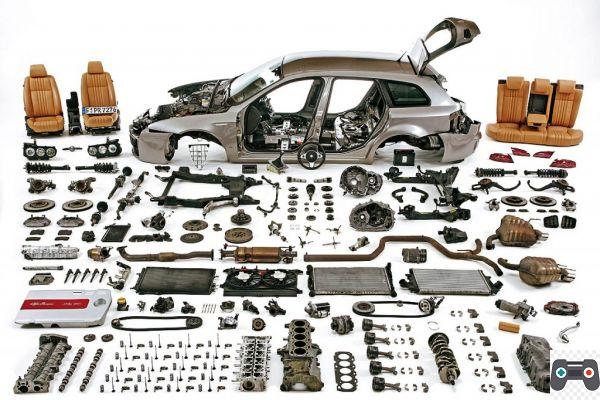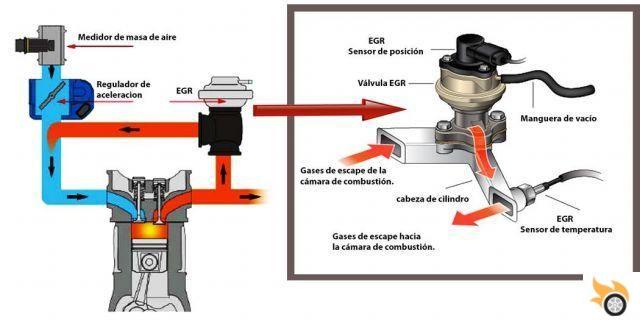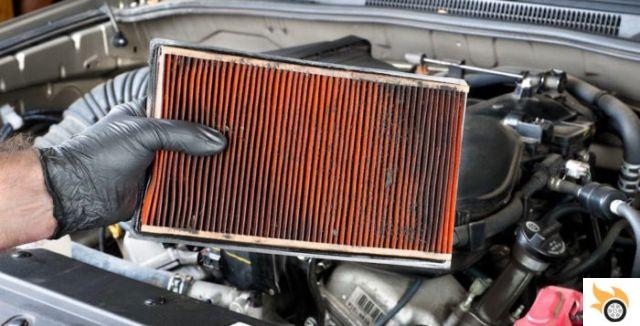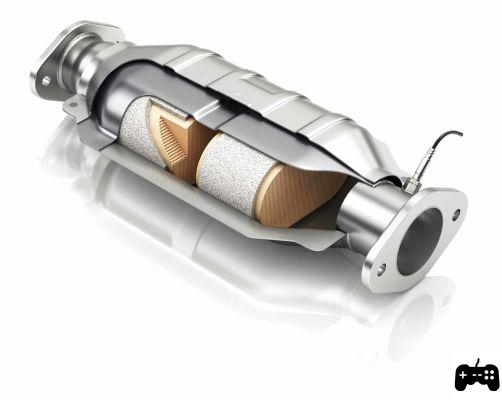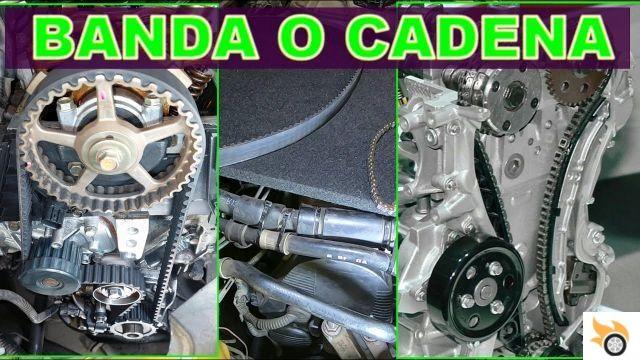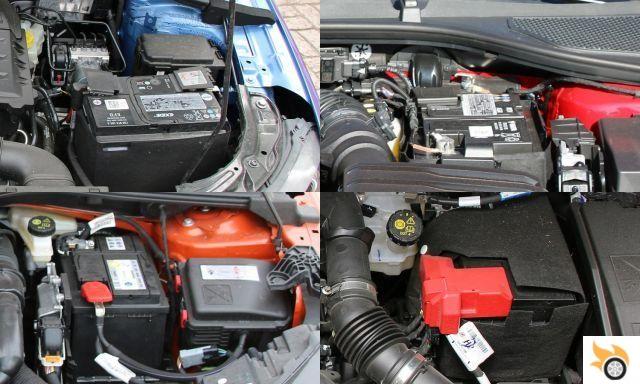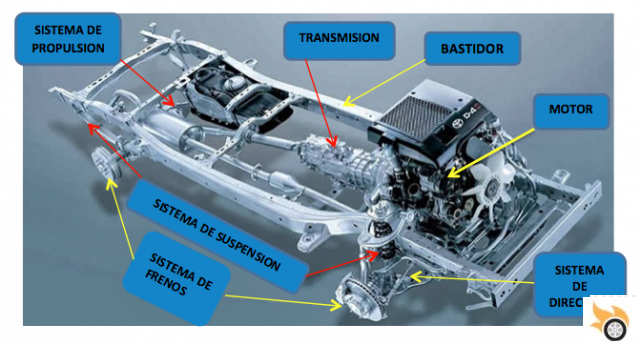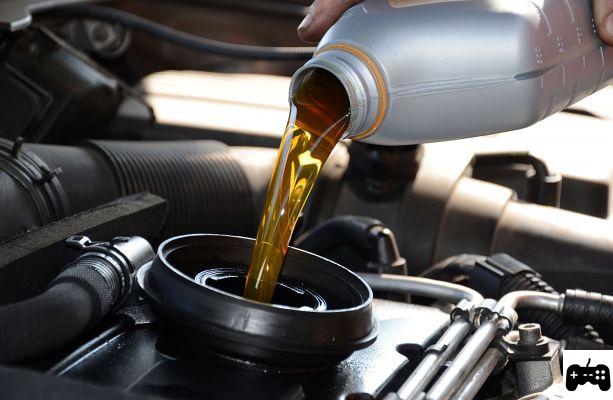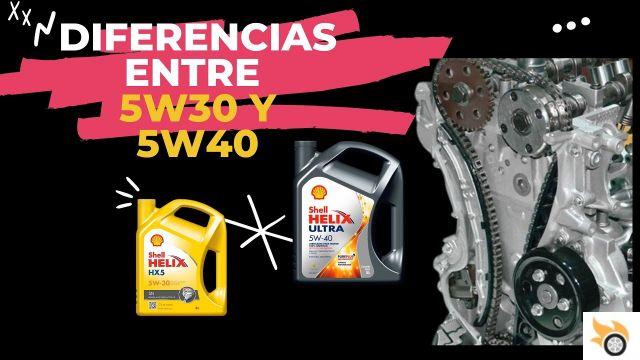
Article: Differences between 5W30 and 5W40 oils
Welcome to our article where we will analyze the differences between 5W30 and 5W40 oils, and we will help you determine which is the best oil to use in your car's engine. Next, we will offer you a detailed explanation of the different aspects that you must take into account when choosing the right oil.
1. Composition and viscosity
The main difference between 5W30 and 5W40 oils lies in their composition and viscosity. The number 5 in both oils indicates their viscosity in cold conditions, being lower in the case of 5W30. This means that 5W30 oil is more fluid at low temperatures, making it easier to start in cold weather and reducing engine wear during warm-up.
On the other hand, the number 30 or 40 indicates the viscosity of the oil at high temperatures. 5W30 oil is thinner at high temperatures than 5W40, which helps reduce friction and wear in the engine. However, 5W40 oil offers greater protection under extreme temperature and load conditions, as it is more resistant to thermal degradation.
2. Manufacturer's recommendations
It is important to take your car manufacturer's recommendations into account when choosing the right oil. Every engine is designed to run on a specific type of oil, and using the wrong oil can negatively affect its performance and durability. Consult your owner's manual or contact the manufacturer for the exact specifications of the recommended oil for your vehicle.
In general, 5W30 oil is more common and is used in newer gasoline engines, while 5W40 oil is more suitable for diesel engines and high performance vehicles. However, it is always best to follow the manufacturer's recommendations to ensure optimum engine performance.
3. Additional benefits and considerations
Now that you know the basic differences between 5W30 and 5W40 oils, it's important to keep some additional benefits and considerations in mind before making a decision:
- 5W30 oil offers better fuel economy due to its lower viscosity, which reduces resistance in the engine.
- 5W40 oil provides increased protection under high temperature and load conditions, which is especially important in diesel engines and high performance vehicles.
- If you live in an area with extreme temperatures, it is advisable to use 5W40 oil, since it is more resistant to thermal degradation.
- If your car has many kilometers traveled or shows signs of wear, 5W40 oil may be more suitable, as it offers greater protection and lubrication.
Frequently Asked Questions (FAQs)
1. Can I use 5W30 oil instead of 5W40?
Yes, in most cases you can use 5W30 oil instead of 5W40 with no problem. However, it is important to take into account the recommendations of the manufacturer of your car and the conditions of use. If your engine requires a specific 5W40 oil, it is best to follow those guidelines to ensure optimum performance.
2. What is the best oil for my car?
The answer to this question depends on the type of engine you have and the conditions of use. If you have a modern gasoline engine, 5W30 oil is likely to be the most suitable. If you have a diesel engine or high performance vehicle, 5W40 oil may offer better protection. It is always advisable to follow the manufacturer's recommendations and consult a professional if you have any doubts.
3. When should I change the oil in my car?
The oil change frequency may vary depending on the manufacturer and the conditions of use. In general, it is recommended to change the oil every 5.000 to 10.000 kilometers or every 6 months, whichever comes first. However, it is important to consult your car's owner's manual for specific recommendations.
Conclusion
In summary, 5W30 and 5W40 oils have significant differences in terms of their composition and viscosity. 5W30 oil is more fluid at low temperatures and offers better fuel economy, while 5W40 oil provides greater protection in extreme temperature and load conditions.
It's important to follow your car manufacturer's recommendations when choosing the right oil, as each engine is designed to run on a specific type of oil. It is always advisable to consult the owner's manual and, if in doubt, seek the advice of a professional.
We hope this article has been useful in solving your doubts about the differences between 5W30 and 5W40 oils. If you have any additional questions, feel free to leave a comment and we'll be happy to help.
Thanks for reading and we hope to see you again at pistonudos.com!
Regards,
The pistonudos.com team








